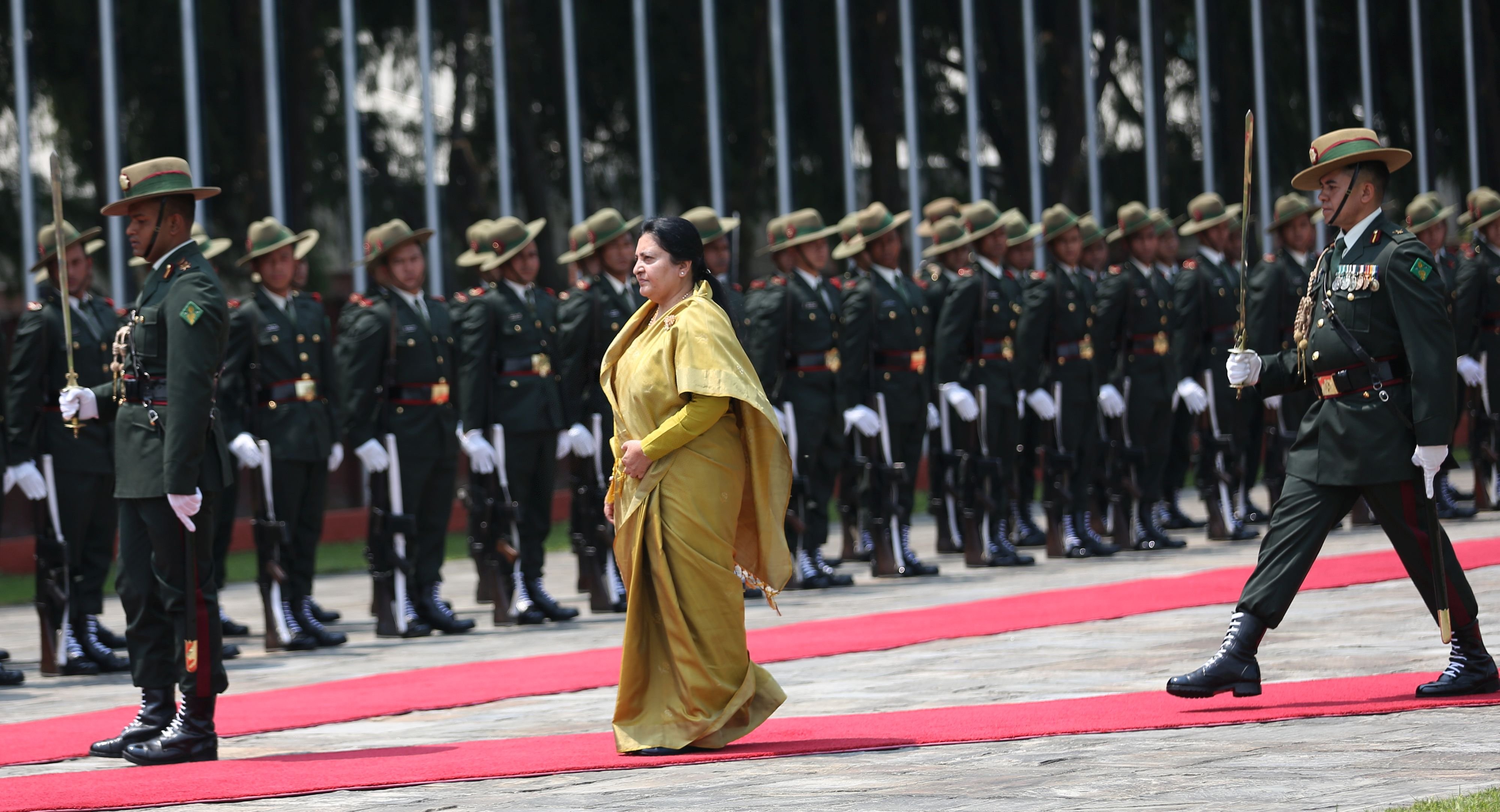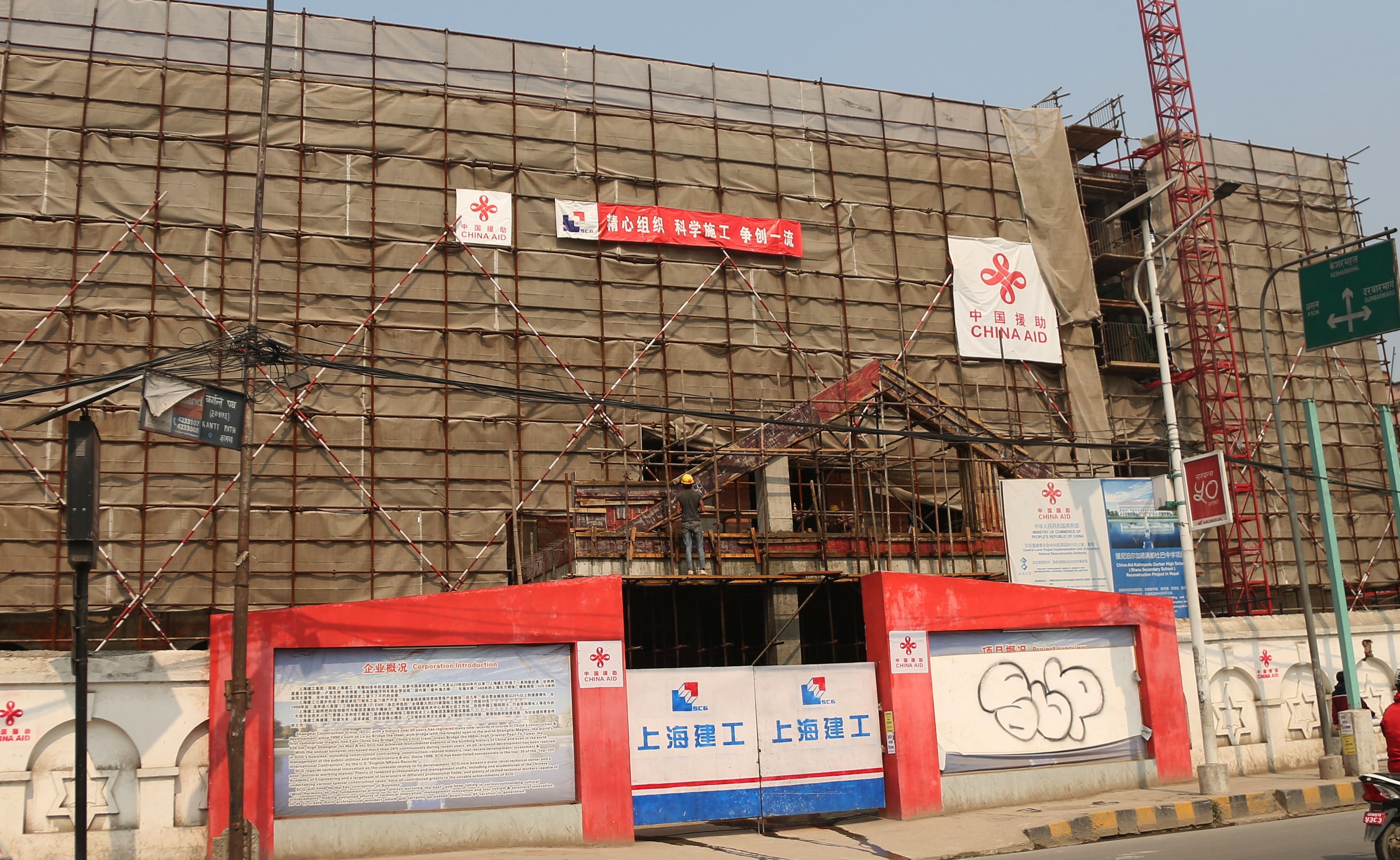Nepalese President's visit to China adds new chapter in China-Nepal ties
- By Ritu Raj Subedi
 0 Comment(s)
0 Comment(s) Print
Print E-mail China.org.cn, May 8, 2019
E-mail China.org.cn, May 8, 2019

Nepalese President Bidya Devi Bhandari's 8-day state visit to China has further consolidated China-Nepal relations, with both neighbors committed to cementing their multi-dimensional cooperation under the broader framework of the Belt and Road Initiative (BRI).
During her visit, Bhandari expressed Nepal's strong willingness to be a proactive player of the BRI to achieve inclusive economic growth and prosperity back home.
This is the first state visit of Nepal's president to its northern neighbor after it became a federal republic in 2008. It has taken "the ties of cooperative friendship and mutually beneficial partnership" between the two nations to newer heights in a fast-changing geo-political environment.
According to the Nepali embassy in Beijing, China has affirmed its support to help Nepal achieve a "Prosperous Nepal, Happy Nepali," and to make Visit Nepal Year 2020 a success by encouraging more Chinese tourists to visit Nepal.
Making reference to the Trans-Himalayan Multi-Dimensional Connectivity Network, China conveyed its support for the development of infrastructure including cross-border railways.
China's positive gesture has boosted the confidence of Nepal's government, which is striving to fulfill the development aspirations of its people following the conclusion of a prolonged transition.
The two countries signed seven fresh agreements which are expected to accelerate connectivity, trade, investment and people-to-people exchanges between the two nations. The accord on the protocol of the Transit and Transport Treaty is historic as it ended Nepal's dependence on India for international trade, elevating it from a land-locked to land-linked country in a real sense.
The two countries inked the transit treaty three years ago and finalized its protocol in September 2018, allowing Nepal to use seven Chinese ports as a third country trade route.
This landmark treaty has guaranteed Nepal's access to international waters through Chinese territory, which frees Nepal from a potential Indian blockade in the future. Nepal had endured at least four economic embargoes from India since the latter became independent in 1947.
The protocol deal will also serve as a stepping-stone in boosting Nepal-China ties as well as Nepal's geopolitical profile in the region and beyond.

Likewise, under the agreement on Economic and Technical Cooperation, the Chinese government pledged a grant assistance of 1 billion yuan for the implementation of mutually agreed projects in the fields of livelihood improvement, post-disaster reconstruction and infrastructure. As Nepal is still in the reconstruction phase following the 2015 earthquake, Chinese fiscal support is very important for the rehabilitation of quake-affected people.
China has provided aid to improving the living conditions of people living in the northern region of Nepal, promoting economic, social and cultural bonds between residents from either side of the border.
This time the joint communiqué, issued after the conclusion of the Belt and Road Forum, has incorporated the Nepal-China Trans-Himalayan Multi-Dimensional Connectivity Network and Nepal-China cross-border railway, giving impetus to the construction of the proposed Kerung (Gyirong)-Kathmandu railway.
This is the big achievement that Nepal made through its participation in the 2nd BRF.
Nepal joined the BRI in May 2017 and the two countries agreed to set up the Trans-Himalayan Multi-Dimensional Connectivity Network during Prime Minister Khadga Prasad Sharma Oli's visit to China in June 2018.
Addressing the 2nd BRF, President Bhandari said the BRI was emerging as a key driver for poverty alleviation, employment generation, infrastructure building and industrial transformation. She expressed her confidence that it would support the process of economic transformation in Nepal by expanding connectivity networks and supporting the country's economic integration into the global market.
Nepal and China are in negotiations to pick development projects to be executed under the BRI framework. The Nepalese government says that a detailed project report (DPR) of the Kerung (Gyirong)-Kathmandu railway will be completed in the next five months.
Bhandari's visit to China has helped consolidate ties between the two countries and push forward bilateral cooperation under the framework of the Belt and Road Initiative (BRI). It is of special significance in the history of Nepal.
Ritu Raj Subedi is Deputy Executive Editor of The Rising Nepal.
Opinion articles reflect the views of their authors, not necessarily those of China.org.cn.
If you would like to contribute, please contact us at opinion@china.org.cn.





